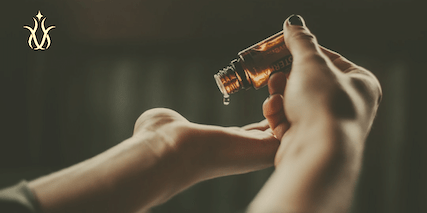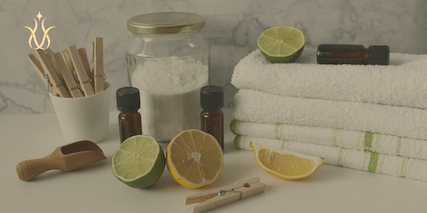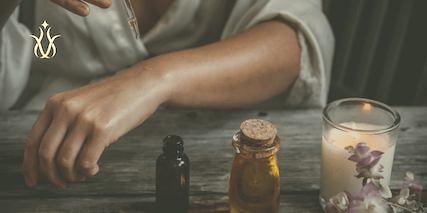Discover the transformative power of using essential oils for your skincare routine with our comprehensive guide to the top oils. From reducing acne to rejuvenating ageing skin, these natural remedies offer a holistic approach to achieving radiant and healthy skin. Explore the benefits, usage tips, and insights to unlock the potential of essential oils for your skin. Elevate your self-care routine and unveil a complexion that exudes beauty and vitality.
Introduction
Our skin is a remarkable organ, not just a canvas for cosmetics but a barrier that protects us against the outside world. One way we can enhance its resilience and beauty is through the use of essential oils. These natural oils, distilled from plant extracts, hold a wealth of benefits for skin health. This guide will illuminate the top essential oils for skin care, offering a sensory journey that marries aesthetics with well-being.
Understanding Your Skin Type
Before we delve into the aromatic world of essential oils, it’s vital to understand your unique skin type. Our skin comes in a range of types, typically categorised as dry, oily, or sensitive.
Dry skin often feels tight and may exhibit signs of flaking or scaling. On the other hand, oily skin, due to overactive sebaceous glands, tends to be glossy and is often prone to acne. As the term suggests, sensitive skin reacts to environmental factors and certain products with redness, itching, or even breakouts.
Knowing your skin type is the first step towards a personalised skincare regime. When it comes to essential oils, this knowledge will help you select the most suitable ones for your specific needs, ensuring optimal benefits.

The Role of Essential Oils in Skin Care
Essential oils have played a pivotal role in skincare for centuries, prized by ancient civilisations and modern-day beauty gurus. Brimming with active compounds, these botanical extracts can profoundly affect skin health.
One aspect of essential oils that sets them apart is their dual role in skincare and aromatherapy. The sensory experience that essential oils offer can boost our mood, reduce stress, and promote relaxation – all contributing to better skin health. For example, Lavender oil, renowned for its calming scent, exhibits potent antimicrobial and anti-inflammatory properties, making it a powerful ally for skin health.
Essential oils can cater to various skin types and conditions, from hydrating dry skin to taming oiliness and soothing sensitivity. Stay with us as we explore these powerhouses of natural skincare and discover how to use them effectively and safely.
Essential Oils and Skin Ageing
As we progress through life, our skin changes, too. Ageing manifests through wrinkles, fine lines, and loss of elasticity. But here’s where essential oils can provide a helping hand. Certain oils, like Frankincense and Neroli, have been found to combat signs of skin ageing.
Skin elasticity, a key factor in youthful-looking skin, relies on collagen and elastin production. Essential oils can stimulate this production, helping maintain skin’s flexibility and tautness. A study demonstrated that essential oils, like carrot seed oil, possess potent antioxidant properties, enhancing skin elasticity and reducing the visible signs of ageing.
Essential Oils and Skin Hydration
Hydration is to skin what water is to plants – a lifeline. Essential oils can deliver intense hydration, leaving your skin supple and glowing. For instance, Rose essential oil, renowned for its intense hydrating capabilities, can replenish dry skin, leaving it smooth and soft.
If you’re battling dry skin, it’s essential to note that some oils can be more beneficial than others. Sandalwood oil, with its natural emollient properties, is known to lock in moisture, and its regular use can leave your skin deeply hydrated and nourished.
Essential Oils and Sun Protection
While vital for vitamin D synthesis, the sun can be the skin’s nemesis, contributing to premature ageing and damaging skin cells. Surprisingly, certain essential oils offer a degree of sun protection. For example, Red Raspberry seed oil has been cited as having a natural SPF, offering some protection against harmful UV rays. However, it’s crucial to note that essential oils cannot replace traditional sunscreens but can be used as complementary protection.

Top Essential Oils for Skin Care
Lavender Essential Oil
Lavender essential oil is celebrated for its calming fragrance and skin-healing properties. Known to soothe irritated skin, it is particularly beneficial for treating conditions like eczema. In a 2015 study, lavender oil demonstrated the potential to enhance the healing process of the skin.
Tea Tree Essential Oil
Next up is Tea Tree oil, the go-to choice for battling acne. Its anti-inflammatory and antimicrobial properties help reduce redness and swelling, effectively treating acne. A 2017 study found that topical application of tea tree oil significantly improved mild to moderate acne.
Frankincense Essential Oil
Frankincense essential oil is prized for its anti-ageing properties. It promotes cell regeneration and keeps skin tissues healthy, reducing the appearance of wrinkles and fine lines. One study pointed to the potential of frankincense oil in tissue remodelling and anti-ageing.
Rosehip Essential Oil
Rosehip oil is your ally against scars, pigmentation, and inflammation thanks to its high vitamin A and C content. A 2015 study revealed that Rosehip oil effectively improved post-surgical scars.
Geranium Essential Oil
For oily and dry skin types, Geranium oil can balance sebum production and tighten skin, improving overall skin tone. Research suggests that geranium oil has potent antimicrobial and anti-inflammatory properties that are beneficial for skin health.
Ylang Ylang Essential Oil
Ylang Ylang oil not only smells divine but also promotes skin health by regulating sebum production and treating acne. A study confirmed its efficacy in maintaining skin moisture and oil balance.
Chamomile Essential Oil
Chamomile oil has potent anti-inflammatory properties and is ideal for soothing skin irritations and inflammations. Research supports its use in treating skin conditions, including eczema and dermatitis.
Peppermint Essential Oil
Peppermint oil offers a refreshing cooling effect on the skin. It also exhibits antimicrobial properties, making it beneficial for skin health. Research supports these claims, showcasing its effectiveness against various bacteria and fungi.
Rosemary Essential Oil
Rosemary oil, known for its invigorating aroma, can improve skin circulation, leaving it radiant and healthy. A study confirmed rosemary oil’s anti-oxidative properties, contributing to its skin rejuvenation effects.
Neroli Essential Oil
Finally, Neroli oil, known for its wonderful scent and skin-firming properties, can improve skin elasticity and stimulate cell regeneration. A 2012 study showed that Neroli body oil significantly improves skin elasticity and firmness.
Apricot Kernel Oil
Although not strictly an essential oil, Apricot kernel oil is a gentle, nourishing oil derived from the kernels (or seeds) of apricots. Possessing a light texture and a soft, nutty scent, this oil is readily absorbed by the skin, making it a popular ingredient in skincare products.
Apricot kernel oil is particularly high in oleic acid and linoleic acid. These fatty acids can be beneficial for maintaining skin hydration and barrier function. The oil also contains Vitamin E, a potent antioxidant that can help protect the skin from environmental stressors and oxidative damage.
Sandalwood Essential Oil
Sandalwood Essential Oil is excellent for dry skin due to its emollient properties. It helps to hydrate and increase the skin’s elasticity.
Sandalwood oil can help minimise wrinkles and fine lines by promoting skin hydration and elasticity.
Lemon essential oil
Lemon essential oil acts as a natural exfoliant, helping to remove dead skin cells and promote new cell growth.
Lemon oil is often used to reduce the appearance of dark spots and even out skin tone due to its natural lightening properties.
By promoting skin repair and renewal, lemon oil can help in preventing the early signs of ageing.
Palmarosa essential oil
Palmarosa essential oil is a lesser-known but highly effective ingredient in skincare, cherished for its hydrating, balancing, and rejuvenating properties.
Palmarosa oil helps regulate skin moisture levels and oil production, making it excellent for both dry and oily skin types. It can aid in maintaining the skin’s natural moisture balance.
Palmarosa stimulates cell regeneration, promoting a more youthful complexion by reducing the appearance of wrinkles and minor skin damage.
Regular application of diluted palmarosa oil can enhance skin elasticity and vitality, helping to reduce the signs of ageing and making the skin look more vibrant and youthful.
It’s particularly beneficial for balancing sebum production in the skin, which can help reduce acne breakouts in oily skin types.
Using Essential Oils Safely
When it comes to essential oils and skin care, safety is paramount. Essential oils are highly concentrated plant extracts, and while they have numerous benefits, they should be used mindfully. Avoid applying undiluted essential oils directly to your skin, as it can lead to irritation or adverse reactions.
One key point to bear in mind is the potential for allergies. Even natural products like essential oils can trigger allergic reactions in some individuals, leading to symptoms like redness, itching, or rashes. Conduct a patch test by applying a small amount of diluted oil to a discreet area of the skin and observe for any reactions over 24 hours.

How to Blend Essential Oils for Skin Care
Creating your essential oil blend can be fun and beneficial for your skin. Always blend essential oils with carrier oil, like jojoba or coconut oil to avoid skin irritation. The recommended ratio is usually 2-3% essential oil to carrier oil.
To make a hydrating facial oil, combine 30ml of rosehip oil (carrier oil) with 5 drops of frankincense, 5 drops of Geranium oil, and 5 drops of Lavender essential oils. This blend works great for dry and ageing skin.
For acne-prone skin, try a blend of 30ml jojoba oil with 7 drops of tea tree oil and 5 drops of Lavender oil. The combination of anti-inflammatory and antimicrobial properties can help soothe and treat acne.
Choosing High-Quality Essential Oils
When selecting essential oils for skin care, quality should never be compromised. Always choose pure, organic essential oils that are free from pesticides and other synthetic additives. High-quality oils are more likely to provide the skin benefits you seek. They are less likely to cause skin irritation or adverse reactions.
Look for oils packaged in dark glass bottles to protect the oil from light degradation. Additionally, the label should clearly state that the oil is 100% pure essential oil and list the Latin name of the plant species.
Remember, the journey to glowing skin with essential oils is a marathon, not a sprint. Start slow, listen to your skin, and allow these natural wonders to gradually work their magic!
Conclusion
To wrap up, we’ve traversed the fragrant world of essential oils, exploring their powerful properties for skin health. We’ve discussed oils for various skin types, from lavender’s soothing properties to rosehip oil’s hydration boost and frankincense’s anti-ageing qualities. But it’s essential (pun intended) to remember that effective skincare with essential oils relies on quality, careful blending, and mindful application.
Incorporating essential oils into your skincare routine is an enriching, holistic experience that can yield impressive results. Whether you’re seeking to combat skin ageing, improve hydration, or protect your skin from the sun, there’s an essential oil out there for you.
Frequently Asked Questions
Can I apply essential oils directly to my skin?
No, essential oils are highly concentrated and should be diluted with a carrier oil before application to avoid skin irritation.
Are there any side effects to using essential oils for skincare?
Essential oils can cause allergic reactions in some individuals, leading to symptoms like redness, itching, or rashes. It’s always recommended that a patch test be conducted before full application.
What is a carrier oil, and why do I need it?
A carrier oil, such as jojoba or coconut oil, is used to dilute essential oils before skin application. This helps to spread the essential oil and reduces the risk of skin irritation.
What are the best essential oils for acne-prone skin?
Tea tree oil is widely recommended for acne due to its antimicrobial and anti-inflammatory properties. Lavender and Rosemary oils can also help reduce skin inflammation and promote healing.
What are the Best Brands of Essential Oils?
The following are considered some of the top brands for essential oils:
doTERRA: Recognised worldwide for their high-quality, pure essential oils. They source their oils from all over the world.
Young Living: This company has a ‘Seed to Seal’ promise, emphasising its commitment to quality, from plant growth to oil bottling.
Neal’s Yard Remedies: This UK-based company is well-known for its organic, ethically sourced products, including a wide range of essential oils.
Tisserand Aromatherapy: This brand offers a vast array of essential oils and has been a trusted name in aromatherapy for over 40 years.
Plant Therapy: They offer a large selection of oils and are recognised for their quality, transparency, and education around essential oils.
Aromatherapy Associates: Known for their blends, this brand has high-quality products often used in spas.
Base Formula: This company is well-regarded in the UK for their high-quality, therapeutic-grade essential oils.
References:
Orchard, A., & van Vuuren, S. (2017). Commercial Essential Oils as Potential Antimicrobials to Treat Skin Diseases. Evidence-Based Complementary and Alternative Medicine, 2017. Available from: https://www.hindawi.com/journals/ecam/2017/4517971/
Sharmeen JB et al (2021). Essential Oils as Natural Sources of Fragrance Compounds for Cosmetics and Cosmeceuticals. https://pubmed.ncbi.nlm.nih.gov/33514008/
Cleveland Clinic (2022). 11 Essential Oils: Their Benefits and How To Use Them.
Related Topics:
Benefits of Using Essential Oils for Aromatherapy.
The Ultimate Guide to Ayurveda Medicine: How It Works and What to Expect.
The Top Natural Anti-Aging Remedies






